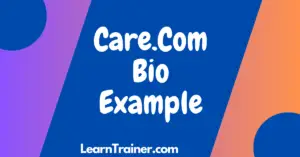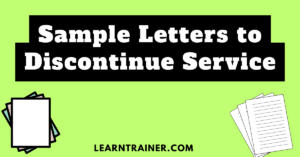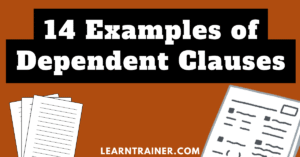Getting a job rejection letter is never easy. For many candidates, an interview is a significant step toward their career dreams, and the weight of not getting that job can be disheartening. But as hiring managers, we face tough decisions, too.
The reality is that only one candidate can be selected for the job, and the others must be informed of the outcome with respect and care.
While it’s not easy to deliver bad news, how you communicate that decision can make a significant difference.
A thoughtful and personalized rejection letter is not just a formality it’s an opportunity to maintain goodwill, protect your company’s reputation, and leave a door open for future opportunities with that candidate.
In this article, we’ll explore how to craft a rejection letter that’s both compassionate and professional, provide several sample letters, and offer tips for handling the rejection process effectively.
Whether you’re a seasoned HR professional or a small business owner conducting your first round of interviews, this guide will give you the tools you need.
Why You Should Send a Thoughtful Rejection Letter
Before we dive into the samples, it’s important to understand why sending a well-crafted rejection letter is crucial.
- Preserving Relationships: A respectful rejection letter helps preserve a positive relationship with the candidate, which could lead to future opportunities or referrals.
- Employer Branding: How you treat candidates reflects your company’s values. A positive rejection experience may make candidates more likely to apply for future roles, even if they didn’t get the job this time.
- Candidate Experience: The interview process, even if unsuccessful, is part of the candidate’s experience. Providing closure helps them process the outcome better and keeps them engaged in a positive way.
- Clear Communication: A rejection letter shows professionalism and transparency. Candidates appreciate knowing where they stand and why they weren’t chosen.
Crafting the Perfect Rejection Letter
Let’s break down the process of writing an impactful rejection letter. Below are key components and steps to guide you.
Key Elements of a Rejection Letter
- Personalization: Always address the candidate by name and include specific details about the interview to make the letter feel personal.
- Gratitude: Thank the candidate for their time and effort. Acknowledge that interviewing can be time-consuming, and express appreciation for their interest in your company.
- Transparency (Why They Were Not Chosen): Be polite and diplomatic, but be clear about why the candidate wasn’t selected. If the reason was skills-based, for example, mention it without being overly critical.
- Encouragement: If appropriate, offer words of encouragement. This helps the candidate leave with a sense of closure and not feeling discouraged.
- Next Steps (Optional): If applicable, let them know about future job openings or encourage them to apply again in the future.
Step-by-Step Guide to Writing the Letter
Let’s walk through the steps to writing a rejection letter. It’s essential to keep the tone friendly, professional, and empathetic.
- Start With a Greeting: Address the candidate by name. Using their first name helps personalize the letter.
- Express Gratitude for Their Time: Let the candidate know you appreciate the effort they put into the interview.
- Clearly Communicate the Decision: Let them know you won’t be moving forward with their application. Keep it short and straightforward but kind.
- Provide Constructive Feedback (Optional): This part is tricky but can be done tactfully. If you feel comfortable, you can mention specific reasons for the decision.
- End on a Positive Note: Encourage the candidate to keep in touch and thank them again for their interest.
Sample Letters
Sample 1: General Rejection After Interview
Subject: Interview Outcome – [Company Name]
Dear [Candidate’s Name],
Thank you for taking the time to interview with us for the [Job Title] position at [Company Name]. We truly appreciated the opportunity to learn more about your experience and the skills you bring to the table.
After careful consideration, we regret to inform you that we have decided to move forward with another candidate for this position. This decision was not an easy one, as we were impressed by your background and the passion you have for [industry/field].
While we won’t be moving forward at this time, we would like to keep your information on file for future openings that may align more closely with your qualifications.
Thank you again for your time and effort throughout the interview process. We wish you the best of luck in your job search and future endeavors.
Best regards,
[Your Name]
[Your Job Title]
[Company Name]
Sample 2: Rejection After Interview With Constructive Feedback
Subject: Feedback on Your Interview at [Company Name]
Dear [Candidate’s Name],
I hope this message finds you well. Thank you for interviewing with us for the [Job Title] position at [Company Name]. It was a pleasure getting to know you and learning more about your career journey.
After careful deliberation, we have decided to move forward with another candidate who is a better fit for the specific skills and experience required for the role. While we were impressed with your background in [specific area], we felt that another candidate’s [specific skill] more closely matched the needs of the team.
We greatly appreciate the time and effort you put into preparing for the interview, and we believe that you will find the right opportunity soon. We’d love to stay in touch and encourage you to apply for future positions with us.
Best of luck in your job search, and thank you again for considering [Company Name].
Warm regards,
[Your Name]
[Your Job Title]
[Company Name]
Sample 3: Rejection After Interview for a Junior Role
Subject: Outcome of Your Interview – [Company Name]
Dear [Candidate’s Name],
Thank you so much for taking the time to interview with us for the [Job Title] role at [Company Name]. We were impressed with your enthusiasm and the way you articulated your passion for [field].
After reviewing all candidates, we regret to inform you that we have chosen to move forward with another candidate for the position. While your qualifications are strong, we felt that another applicant’s experience was more in line with the level of responsibility required for the role.
We encourage you to continue building on your skills, and we would be happy to consider you for future opportunities that may be a better match.
Thank you once again for your interest in [Company Name]. We wish you the best of luck in your career journey.
Sincerely,
[Your Name]
[Your Job Title]
[Company Name]
Sample 4: Rejection After Interview Due to Lack of Experience
Subject: Interview Outcome – [Company Name]
Dear [Candidate’s Name],
Thank you for interviewing with us for the position of [Job Title] at [Company Name]. We sincerely appreciate the time and effort you invested in the interview process, and it was a pleasure learning about your background and aspirations.
After careful review, we have decided to move forward with another candidate who possesses more direct experience in [specific area of expertise]. While we believe you have strong potential, we feel the other candidate’s experience aligns more closely with the immediate needs of the role.
We want to emphasize that your qualifications are impressive, and we encourage you to apply again in the future as we may have opportunities that better align with your experience.
Thank you again for considering [Company Name]. We wish you the best of luck in your career and future endeavors.
Warm regards,
[Your Name]
[Your Job Title]
[Company Name]
Sample 5: Rejection Due to Stronger Cultural Fit with Another Candidate
Subject: Outcome of Your Interview at [Company Name]
Dear [Candidate’s Name],
Thank you for taking the time to meet with us regarding the [Job Title] position at [Company Name]. It was wonderful to hear about your passion for [industry] and your previous experiences in [specific skill/field].
After thoughtful consideration, we have decided to move forward with another candidate who better aligns with the current team dynamics and the company culture. This was a difficult decision, as we truly appreciate the professional background you bring and your enthusiasm for the role.
Please know that we value your interest in joining [Company Name], and we will keep your resume on file for future openings that may be a better fit. We encourage you to apply again in the future should a more suitable position arise.
Thank you again for your time and effort. We wish you every success in your job search.
Sincerely,
[Your Name]
[Your Job Title]
[Company Name]
Sample 6: Rejection After Interview Due to Lack of Specific Skills
Subject: Interview Outcome – [Company Name]
Dear [Candidate’s Name],
I hope you are doing well. Thank you for interviewing for the [Job Title] position at [Company Name]. It was a pleasure speaking with you and learning more about your experience and expertise.
After careful consideration, we have decided not to move forward with your application. While we were impressed with your skills and background, the role requires specific expertise in [specific skill or technology], which we found to be a stronger match with another candidate.
We want to thank you once again for your time and effort throughout the interview process. We hope that you will continue to stay in touch and consider applying for future openings that better align with your strengths.
Best regards,
[Your Name]
[Your Job Title]
[Company Name]
Sample 7: Rejection After Interview Due to High Competition
Subject: Interview Outcome – [Company Name]
Dear [Candidate’s Name],
Thank you for interviewing for the [Job Title] role at [Company Name]. We appreciate the time and effort you dedicated to the interview process, as well as your interest in our team and the position.
After a thorough review of all candidates, we have decided to proceed with another individual who closely matched the qualifications and experience we are seeking for this role. We had a highly competitive pool of applicants, and while your qualifications are impressive, we believe another candidate is the best fit for this particular position.
We truly appreciate your interest in [Company Name], and we would be happy to consider you for future opportunities that better align with your skills and experience.
Thank you once again for your time. We wish you all the best in your job search.
Kind regards,
[Your Name]
[Your Job Title]
[Company Name]
Sample 8: Rejection After Interview for Internal Candidate
Subject: Outcome of Your Interview for [Job Title] Role
Dear [Candidate’s Name],
Thank you for your interest in the [Job Title] position at [Company Name] and for taking the time to interview. It’s always a pleasure to see team members eager to take on new challenges within the company.
After careful review, we have decided to move forward with another candidate for this role. This decision was not made lightly, and it reflects the specific needs of the role at this time. We sincerely appreciate your dedication to [Company Name] and your continued contributions.
We value your efforts and encourage you to explore future opportunities within the company that align with your career goals. Your growth and development are important to us, and we want to continue supporting you.
Thank you once again, and we look forward to working with you in the future.
Sincerely,
[Your Name]
[Your Job Title]
[Company Name]
Sample 9: Rejection After Interview for Remote Work Position
Subject: Outcome of Your Interview – [Job Title] at [Company Name]
Dear [Candidate’s Name],
I hope you are doing well. I wanted to take a moment to thank you for your time and effort during the interview process for the [Job Title] position at [Company Name]. It was great learning more about your experience, especially with [mention relevant experience], and your enthusiasm for remote work.
After careful evaluation, we have decided to move forward with another candidate whose remote working experience and skill set more closely align with the needs of the role.
While we were very impressed with your qualifications, this decision was made based on the specific demands of the position. However, we truly appreciate your interest in [Company Name], and we will keep your resume on file for any future remote opportunities that may be a better match.
Thank you once again for your time, and we wish you the best in your job search.
Best regards,
[Your Name]
[Your Job Title]
[Company Name]
Sample 10: Rejection After Interview for High-Salary Expectations
Subject: Outcome of Your Interview for [Job Title] Position
Dear [Candidate’s Name],
Thank you so much for interviewing with us for the [Job Title] role at [Company Name]. We greatly appreciate your time and effort throughout the interview process, and it was a pleasure learning more about your qualifications and experience.
After careful consideration, we have decided to move forward with another candidate whose compensation expectations align more closely with the budget for the position. This decision was not an easy one, as we were genuinely impressed with your skills and background.
We want to thank you again for considering a role at [Company Name]. We encourage you to stay in touch and apply for future opportunities that may be a better fit for your career goals and expectations.
Best of luck in your job search, and thank you once again for your interest in joining our team.
Kind regards,
[Your Name]
[Your Job Title]
[Company Name]
Sample 11: Rejection After Interview for Unclear Job Fit
Subject: Interview Outcome – [Company Name]
Dear [Candidate’s Name],
I hope you’re well. Thank you so much for your time and effort during the interview process for the [Job Title] position at [Company Name]. It was great getting to know you and learning about your background.
After much thought, we’ve decided not to proceed with your application. While we found many aspects of your experience to be impressive, we felt that the role’s specific responsibilities weren’t the right match for your current skill set.
We believe you have great potential and encourage you to stay in touch. If a more suitable opportunity arises in the future, we’d love to reconsider your candidacy.
Thank you again for your interest, and we wish you every success in your job search.
Best regards,
[Your Name]
[Your Job Title]
[Company Name]
Table: Sample Rejection Scenarios and Templates
| Scenario | Key Focus | Sample Letter Style | Why Use This Template |
| General Rejection After Interview | No specifics or feedback | Short and formal | For candidates who were not selected but were a strong fit overall. |
| Constructive Feedback Rejection | Feedback-based rejection | Specific skills or experience | When you want to provide constructive criticism to help the candidate improve. |
| Junior Role Rejection | Role level mismatch | Encouraging and clear | For candidates applying for entry-level or junior roles who may need more experience. |
| Shortlisted but Not Chosen | Close competition, no final pick | Diplomatic with encouragement | For candidates who were strong contenders but ultimately not chosen. |
| Culture Fit Rejection | Fit with company culture | Friendly, respectful | When a candidate has the qualifications but doesn’t quite match the team dynamics. |
Personal Insights: Navigating the Difficult Conversations
Handling rejection letters is tough, but it’s also an opportunity to exercise empathy and professionalism.
From my own experience, I’ve seen that a simple gesture like a personalized rejection letter can go a long way. It helps to remember that every candidate you reject is someone who has hopes, dreams, and ambitions.
By acknowledging their effort with kindness and transparency, you create a positive experience for them despite the bad news.
Conclusion
Sending a rejection letter is never an easy task, but it’s essential to do it right. Crafting a thoughtful, clear, and respectful letter not only reflects well on your company but also helps the candidate feel valued and respected.
Here’s a quick recap of the key points:
- Personalize your rejection letter to show respect for the candidate’s time and effort.
- Be transparent and clear about why you’re not moving forward, but do so kindly.
- End with a positive note and encourage the candidate to apply for future opportunities.
- Use rejection letters as a way to maintain relationships, enhance your employer brand, and demonstrate professionalism.
Now that you’re equipped with these sample letters and tips, take the next step in your hiring process with confidence. If you’ve found this article helpful, feel free to leave a comment, share your own rejection letter experiences, or ask any questions about how to handle tough hiring decisions.
FAQs
- How do I tell a candidate they weren’t selected for a job without hurting their feelings?
- Acknowledge their effort, provide feedback, and use kind, encouraging language. Focus on their strengths and express gratitude for their time.
- Can I provide feedback on why a candidate wasn’t chosen?
- Yes, but it should be constructive. Be specific about skills or experience gaps without sounding critical. Offering encouragement is key.
- Is it okay to send a form letter as a rejection?
- It’s better to avoid generic templates. Personalizing the letter shows respect and appreciation for the candidate’s time.
- What if I want to hire someone in the future, should I keep their details?
- Yes, it’s a great idea to keep strong candidates on file for future openings. Make sure to ask for their consent to keep their information.


